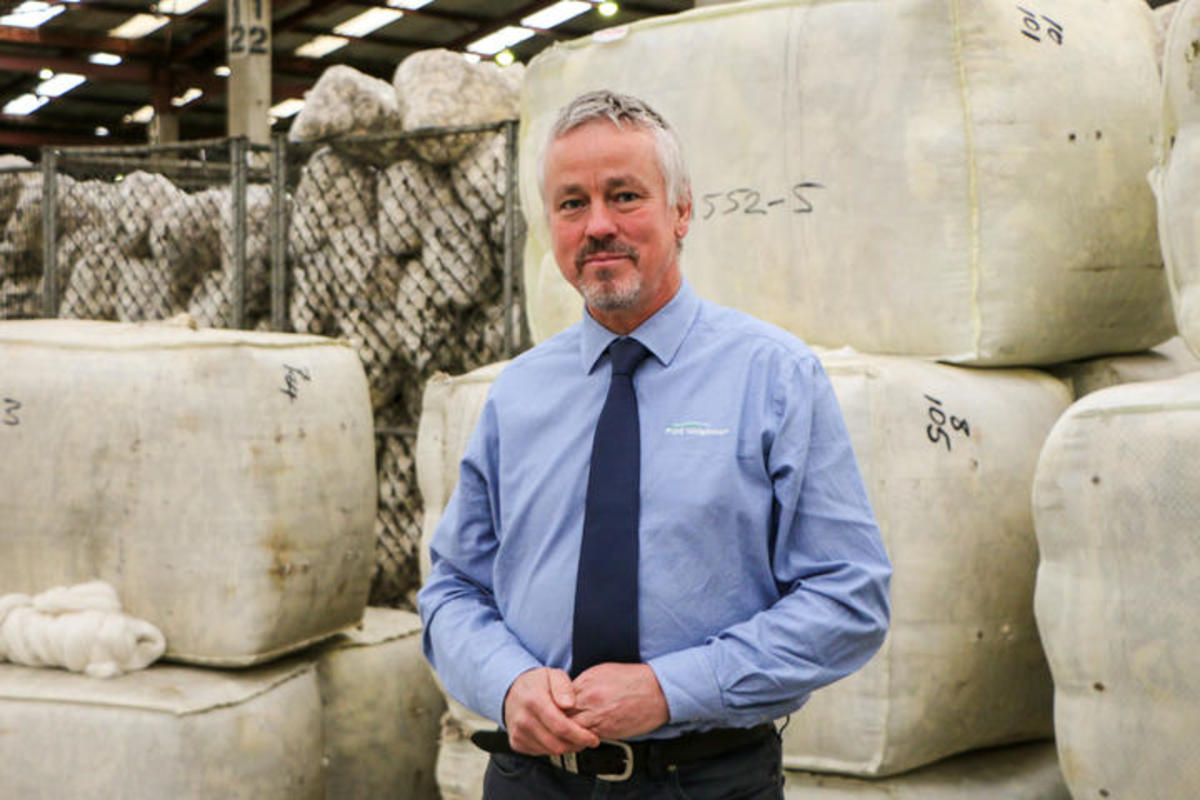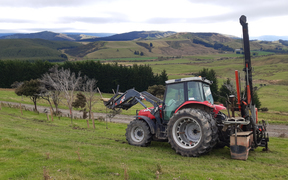Rock bottom crossbred wool prices pose dilemma for farmers
Reporting by RNZ
01 July 2020, 1:15 AM
 Wool prices have taken a big hit due to Covid-19, farmers are worried says Dave Burridge. PHOTO: RNZ / Maja Burry
Wool prices have taken a big hit due to Covid-19, farmers are worried says Dave Burridge. PHOTO: RNZ / Maja BurryCrossbred wool prices have plummeted to new record low levels in the wake of Covid-19, with some farmers receiving less than a dollar a kilogram for their wool.
Coarse wool makes up about 85 percent of New Zealand's total wool clip, but prices have been low for years.
South Canterbury sheep farmer and former Federated Farmers meat and wool chair, Miles Anderson, said the problems facing the sector had been exacerbated further by the coronavirus.
Miles Anderson said at the moment returns to farmers didn't even come close to covering the costs of shearing and in some cases, it wasn't even worth sending the wool off farm.
"Prior to the lockdown... I'd say we would've been averaging around the $2.50 mark for a kilo of fleece wool, since the lockdown we've been lucky to get a dollar for a kilo of fleece wool, [which is] well below what it costs to get the wool off the animal."
PGG Wrightson's South Island wool manager, Dave Burridge, said there was little demand from the overseas mills that usually import New Zealand wool, reflecting the continued fallout from the virus.
"We're certainly seeing some serious headwinds in our industry... to put it bluntly it's quite depressing, very, very in fact."
Burridge said the challenges facing wool growers were not limited to New Zealand, other wool exporting nations were in similar stife. But what doesn't help is that the industry here is fragmented, with no governing body representing New Zealand wool growers, and no funding available to properly promote their product.
"It's been 20 years now since the demise of the New Zealand Wool Board, and I think it would be fair to say that the track record would indicate there's probably grounds for another conversation to be had, for growers to re-group for their business, because at the end of the day they own their own wool."
A Mackenzie District sheep and beef farmer near Fairlee, Greg Anderson, said the wool prices were frustrating, and he agreed better marketing would play a key part in improving returns.
Anderson said New Zealand's crossbred wool was some of the best in the world and should be promoted as a sustainable product, compared to synthetic fibres.
He said if things don't improve the industry could disintegrate, with some farmers already opting to convert to sheep breeds that grow very little or no wool.
"A lot of farmers will find ways to get away from producing sheep that produce wool, because farmers are very quick adapters, you know the Wiltshire breed I know they're selling very well up in the North island at the moment... and then you lose a whole industry."
A government and industry-led wool working group was set up in July last year, to try to find a way to revive the struggling sector. As part of this, a report outlining a comprehensive plan for the whole sector was expected to be released months ago by Agriculture Minister Damien O'Connor.
O'Connor said there have been delays due to Covid-19, but he hopes to release the report in the next 10 days.
By Maja Burry, Rural reporter RNZ
@majaburry [email protected]
Republished by arrangement
AG | TRADES & SUPPLIES





